Author Vangelis
Le bateau ivre
[1871]
Le bateau ivre
Poesia / A Poem by / Poésie / Runo : Arthur Rimbaud
1.Musica / Music / Musique / Sävel : Philippe Servain
Interprete / Interprète / Performer / Laulavat : Philippe Léotard
2.Musica / Music / Musique / Sävel : Léo Ferré
Interprete / Interprète / Performer / Laulavat : Léo Ferré
3.Musica / Music / Musique / Sävel : Vangelis
Interprete / Interprète / Performer / Laulavat : Fanny Ardant
4.Interpretazione / Interprétation / Performance / Laulavat : Gerard Philipe
5.Interpretazione / Interprétation / Performance / Laulavat : Jean-Louis Trintignant
L'imagination au pouvoir
Il quadro storico
Gli ultimi decenni dell’Ottocento in Francia videro la nascita e lo sviluppo di movimenti culturali che avrebbero avuto notevoli influssi in tutta Europa e nel Novecento: Positivismo, Decadentismo e Naturalismo. L’Empire era crollato nel 1870, la Burgeoisie non poteva più celebrare... (Continues)
Le bateau ivre
Poesia / A Poem by / Poésie / Runo : Arthur Rimbaud
1.Musica / Music / Musique / Sävel : Philippe Servain
Interprete / Interprète / Performer / Laulavat : Philippe Léotard
2.Musica / Music / Musique / Sävel : Léo Ferré
Interprete / Interprète / Performer / Laulavat : Léo Ferré
3.Musica / Music / Musique / Sävel : Vangelis
Interprete / Interprète / Performer / Laulavat : Fanny Ardant
4.Interpretazione / Interprétation / Performance / Laulavat : Gerard Philipe
5.Interpretazione / Interprétation / Performance / Laulavat : Jean-Louis Trintignant
L'imagination au pouvoir
Il quadro storico
Gli ultimi decenni dell’Ottocento in Francia videro la nascita e lo sviluppo di movimenti culturali che avrebbero avuto notevoli influssi in tutta Europa e nel Novecento: Positivismo, Decadentismo e Naturalismo. L’Empire era crollato nel 1870, la Burgeoisie non poteva più celebrare... (Continues)
Comme je descendais des Fleuves impassibles,
(Continues)
(Continues)
Contributed by Riccardo Gullotta 2019/9/24 - 16:30
Song Itineraries:
1968 and surroundings
Νεραντζούλα
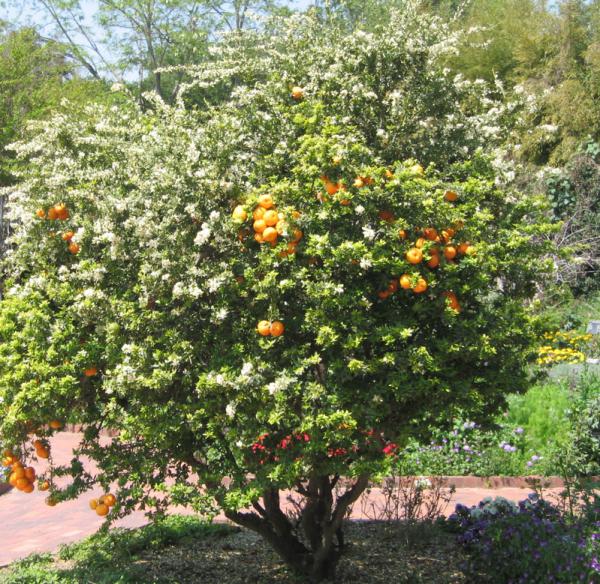
Nerantzoúla
[182?/1978]
Versione di Irene Papas / Ειρήνη Παππά (come da Lyrics of music by Vangelis) di una canzone popolare risalente alla guerra d’indipendenza greca contro la dominazione ottomana.
Musica tradizionale arrangiata da Evangelos Odysseas Papathanassiou / Ευάγγελος Οδυσσέας Παπαθανασίου, in arte Vangelis / Βαγγέλης.
Nell’album di Irene Papas intitolato “Ωδές”
“Νεραντζούλα” è diminutivo di “νεραντζιά”, l’arancio amaro, o melangolo.
Alberello d’arancio amaro fiammeggiante, dov’è la tua bellezza, dove sono i tuoi fiori? Il vento del nord te li ha strappati via, scuotendoti con violenza…
Un lamento, descrizione della condizione della Grecia sotto l'Impero Ottomano, che vorrei dedicare al popolo greco oggi, flagellato dalla ferocia della masnada di affaristi, politicanti e tecnoburocrati che domina questa Europa, la stessa che da sempre appoggia gli USA nella loro dissennata... (Continues)
[182?/1978]
Versione di Irene Papas / Ειρήνη Παππά (come da Lyrics of music by Vangelis) di una canzone popolare risalente alla guerra d’indipendenza greca contro la dominazione ottomana.
Musica tradizionale arrangiata da Evangelos Odysseas Papathanassiou / Ευάγγελος Οδυσσέας Παπαθανασίου, in arte Vangelis / Βαγγέλης.
Nell’album di Irene Papas intitolato “Ωδές”
“Νεραντζούλα” è diminutivo di “νεραντζιά”, l’arancio amaro, o melangolo.
Alberello d’arancio amaro fiammeggiante, dov’è la tua bellezza, dove sono i tuoi fiori? Il vento del nord te li ha strappati via, scuotendoti con violenza…
Un lamento, descrizione della condizione della Grecia sotto l'Impero Ottomano, che vorrei dedicare al popolo greco oggi, flagellato dalla ferocia della masnada di affaristi, politicanti e tecnoburocrati che domina questa Europa, la stessa che da sempre appoggia gli USA nella loro dissennata... (Continues)
Νεραντζούλα φουντωμένη
(Continues)
(Continues)
Contributed by Bernart Bartleby 2015/7/24 - 12:37
Loud, Loud, Loud
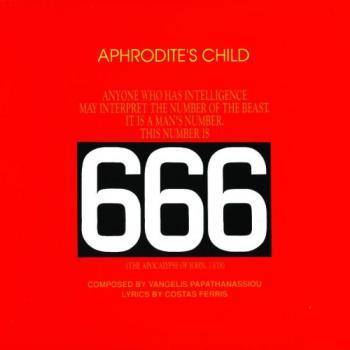
[1972]
Parole di Costas Ferris / Κώστας Φέρρης (1935-), regista cinematografico, scrittore, attore e produttore greco. Nel 1983 il suo film “Rembetiko” (“Ρεμπέτικο”) vinse l’Orso d’Argento al festival di Berlino.
Musica di Evangelos Odysseas Papathanassiou / Ευάγγελος Οδυσσέας Παπαθανασίου, in arte Vangelis / Βαγγέλης
Nel doppio album finale degli Aphrodite’s Child, intitolato “666 (The Apocalypse of John, 13/18)”, concept album ispirato all’Apocalisse dell’apostolo Giovanni.
Non so di chi sia la voce recitante in questo brano. Mi sembra femminile ma viene attribuita a tal Daniel Koplowitz ovvero a tal John Forst.
Una bellissima spoken song, anzi, una preghiera, con coro collettivo degli Aphrodite’s Child di Artemios "Demis" Ventouris-Roussos / Αρτέμιος "Ντέμης" Βεντούρης-Ρούσσος
(Riccardo, sarà mica tuo parente alla lontana?)
Parole di Costas Ferris / Κώστας Φέρρης (1935-), regista cinematografico, scrittore, attore e produttore greco. Nel 1983 il suo film “Rembetiko” (“Ρεμπέτικο”) vinse l’Orso d’Argento al festival di Berlino.
Musica di Evangelos Odysseas Papathanassiou / Ευάγγελος Οδυσσέας Παπαθανασίου, in arte Vangelis / Βαγγέλης
Nel doppio album finale degli Aphrodite’s Child, intitolato “666 (The Apocalypse of John, 13/18)”, concept album ispirato all’Apocalisse dell’apostolo Giovanni.
Non so di chi sia la voce recitante in questo brano. Mi sembra femminile ma viene attribuita a tal Daniel Koplowitz ovvero a tal John Forst.
Una bellissima spoken song, anzi, una preghiera, con coro collettivo degli Aphrodite’s Child di Artemios "Demis" Ventouris-Roussos / Αρτέμιος "Ντέμης" Βεντούρης-Ρούσσος
(Riccardo, sarà mica tuo parente alla lontana?)
The day the walls of the cities will crumble away
(Continues)
(Continues)
Contributed by Bernart Bartleby 2015/7/11 - 21:14
March With Me
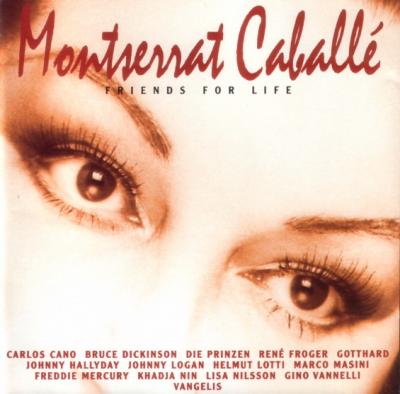
[1997]
Album “Friends For Life”
Parole di Montserrat Caballé
Musica di Evangelos Odysseas Papathanassiou, in arte Vangelis
Album “Friends For Life”
Parole di Montserrat Caballé
Musica di Evangelos Odysseas Papathanassiou, in arte Vangelis
Come sing with me
(Continues)
(Continues)
Contributed by Bartleby 2010/11/3 - 15:53
Song Itineraries:
Anti-war classical music
×
![]()

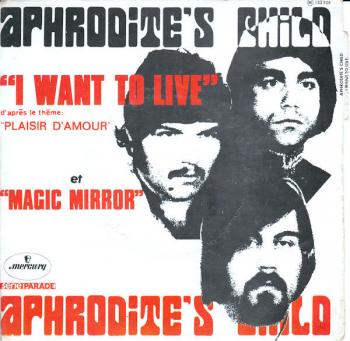
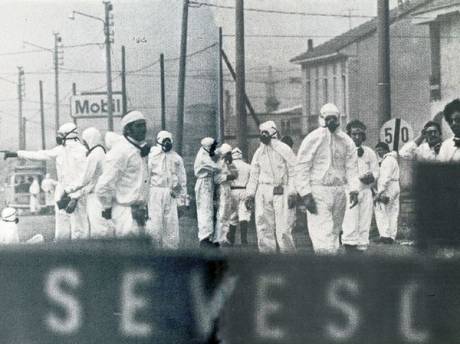
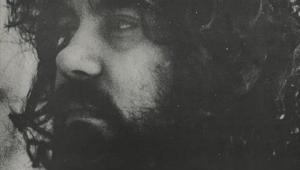
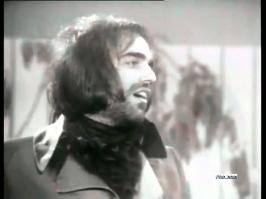
Lyrics by Boris Bergman
Music by Jean-Paul-Égide Martini (“Plaisir d'amour”, [1784]), rearranged by Vangelis / Βαγγέλης
Aphrodite's Child (Παιδί της Αφροδίτης) was formed in 1967 by Vangelis (keyboards), together with his musician friends Demis Roussos (bass guitar and vocals), Lucas Sideras (drums and vocals) and Anargyros "Silver" Koulouris (guitar).
But when the group went to Paris in 1968 Koulouris had to stay in Greece (for military service).
The first single was released in 1968: "Plastics nevermore" / "The other people" (as a demo for Philips).
The single "Rain and Tears", released in May 1968, was a huge success all over the world.
The first album: "End of the World" was released in 1968.
In 1969 Aphrodite's Child released their second album "It's Five o'Clock".
In 1970 Vangelis started working on the album "666", when Silver Koulouris joined Aphrodite's Child.
The... (Continues)